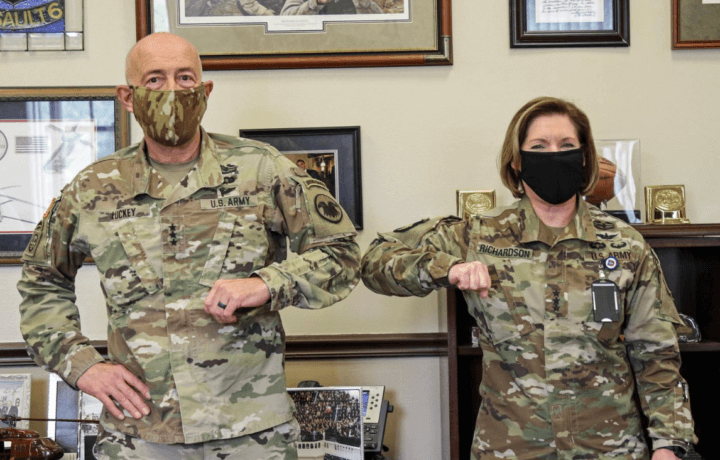With the uncertainty of the COVID-19 pandemic, more soldiers across a gamut of specialties are reconsidering their decision of leaving the Army. In response to the Army’s retention strategy, many have decided instead to take advantage of the new voluntary extension program now offered and stay in…at least in the short-term. Under the new program, soldiers that had separation dates coming up within the next few months can now request a voluntary extension of their service to remain in the Army anywhere from three months up to one year. And unlike most extension programs of the past, this voluntary extension is open to all ranks, including Commissioned and Warrant Officers.
2020 is the Year We learn to Be Flexible
Soldiers get out of the Army for a variety of reasons. For some, their enlistment is complete, and they choose to not reenlist. Others are eligible for retirement and choose that route out of the Army. Some resign and get out before their enlistment is completed. Regardless of the reason, the coronavirus has upset many soldiers’ best laid plans.
Employment Options and Education Opportunities Up in the Air
The dream job that factored into their decision to transition out may have suddenly disappeared. And high unemployment in the civilian marketplace has made finding a job much more difficult, at least in the near-term. Soldiers intent on getting out and going to school on the Post 9/11 GI Bill are now questioning that decision with the post-secondary education system in a turmoil right now; will classes be online only, resident on campus, or a hybrid of both? For many schools, that decision is still up in the air with school starting in less than two months.
Unclear Paths Show Value of Current Army Offerings
Many soldiers feel that the path is not clear enough right now to warrant making the decision to transition. Besides, soldiers can keep the security of a paycheck, health benefits and other perks of active duty service and still use Tuition Assistance, Tuition Top-Up or even their Post 9/11 GI Bill to take classes. Within the span of the past few weeks, the financial security and safety net of staying in the Army seems like the better route to go … at least until the pandemic is under control.
Not everyone Who Asks Will Receive
But there is a catch of wanting to stay in – the approval of a voluntary extension request is not automatic.
Maj. Gen. Joseph Calloway, who leads Army Human Resources Command recently said of voluntary extension requests: “When we get that, we of course make an assessment: does the person have a record that is consistent with what we want to keep and do they have a specialty that is something the Army continues to need. Drill sergeants, recruiters, aviators, military intelligence and cyber specialties, as well as medical personnel needed for the COVID-19 response, are among the career fields the service will likely need the most.” “Those are just examples. There are others, as well,” he added.
Army Retention Strategy Fills Gaps and Reduces Costs
As of March 28, about 9,000 soldiers that had planned on leaving the Army within the next six months were eligible for short-term extensions. The voluntary extension program will also help fill a personnel gap caused by the pause in Basic Training and Advanced Individual Training and now reduced training class sizes due to the pandemic.
The voluntary extension program benefits everyone. The Army projects it will now meet its troop level goal by the end of the fiscal year in September. Additionally, it costs less money to maintain an existing trained soldier than it does to train new enlistees, thus reducing costs.




